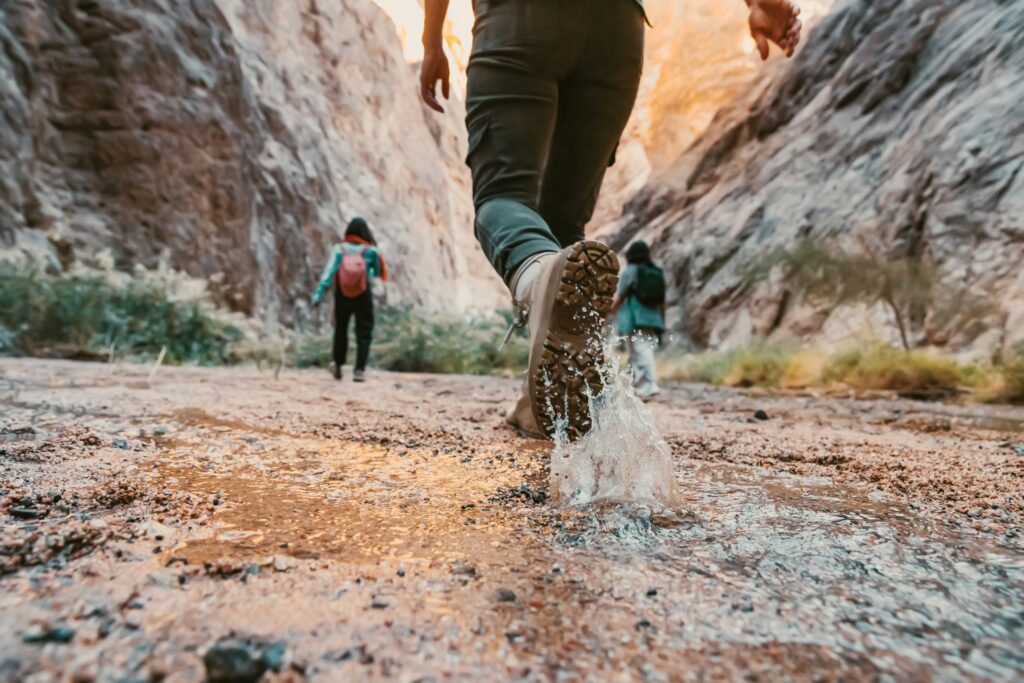Embarking on a hiking trek is not only a thrilling adventure but also a chance to connect with nature and challenge oneself. However, ensuring a safe and injury-free journey is paramount to truly enjoy the experience. Here are some indispensable tips to keep you on the trail and away from injuries during your hiking escapades:
Start Slow, Warm-Up Right
Begin your hike at a moderate pace, allowing your body to warm up gradually. Stretching before hitting the trail can help loosen your muscles and prevent strains or pulls.
Invest in Proper Footwear
Choosing the right hiking shoes or boots is crucial for maintaining stability and preventing foot injuries. Ensure your footwear offers ample support, traction, and protection for the terrain you’ll encounter.
Pack Light
Carrying excessive weight can strain your muscles and joints, increasing the risk of injuries. Prioritize packing only essential items, and distribute the weight evenly in your backpack to maintain balance.
Stay Hydrated and Nourished
Dehydration and lack of proper nutrition can impair your physical performance and increase the likelihood of accidents. Carry an adequate supply of water and nutritious snacks to fuel your body throughout the hike.
Mind Your Steps
Pay close attention to your footing, especially on uneven or challenging terrain. Take deliberate steps and watch out for loose rocks, roots, or slippery surfaces to avoid trips and falls.
Take Breaks and Listen to Your Body
Allow yourself regular breaks to rest and re-energize during long hikes. Listen to your body’s signals and address any discomfort or fatigue promptly to prevent overexertion and potential injuries.
Use Trekking Poles
Trekking poles can provide added stability and support, particularly on steep ascents or descents. They help distribute weight evenly and reduce strain on your joints, minimizing the risk of injuries.
Be Weather-Wise
Stay informed about the weather forecast for your hiking route and prepare accordingly. Dress in layers to adapt to changing conditions and carry essential gear such as rain gear and sun protection to shield yourself from the elements.
Stay on Marked Trails
Venturing off-trail can increase the likelihood of accidents and encounters with hazardous terrain or wildlife. Stick to designated trails to minimize risks and ensure a safer hiking experience.
Practice Leave No Trace Principles
Respect the environment and minimize your impact on the ecosystem by following Leave No Trace principles. Avoid damaging vegetation, wildlife habitats, or natural landmarks, and properly dispose of waste to preserve the wilderness for future generations.
By following these essential tips, you can minimize the risk of injuries and fully immerse yourself in the beauty of nature during your hiking adventures. Remember to prioritize safety and preparation to make the most of your trekking experiences. Happy trails!

